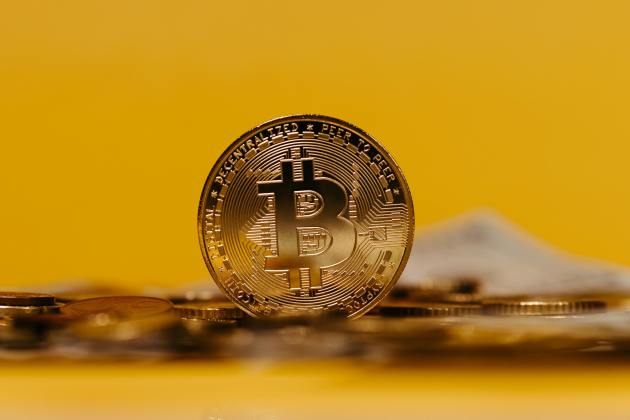2021 is shaping up to be a landmark year for the cryptocurrency landscape. While bitcoin is continuing to discover new all-time price highs, one of the industry’s leading exchanges, Coinbase, is set to go public via a direct listing — heralding a new era for digital finance.
According to Bloomberg, shares in Coinbase traded between $350 and $375 based on a recent private Nasdaq auction — indicating a pre-IPO company value of up to $100 billion.
How Bitcoin Has Grown Coinbase
As we can see from the chart above, as bitcoin’s price has grown, so too has the trading volume that Coinbase has experienced. As the final quarter of 2020 brought with it new all-time highs for the world’s first cryptocurrency, trading volume on the exchange nearly doubled — bolstered by an unprecedented level of institutional traders.
In the chart above, we can see how BTC has rallied throughout Q4 2020 and into Q1 2021 — growing by almost 1,000 percent compared to Q1 2020.
While this exponential growth has undoubtedly given Coinbase a significant amount of leverage in its plans to go public, could the exchange’s arrival on Wall Street, in turn, bring much more confidence in the wider cryptocurrency landscape for the average investor?
Coinbase’s Reliance On Bitcoin
It appears that Coinbase’s decision to go for a direct listing rather than through investment bank underwriting has been made as a subtle nod to the company’s long-standing slogan from 2013: “Welcome To The Future of Money,’ while justifying its status as a “people’s exchange.”
In taking up the direct listing approach, Coinbase has the ability to welcome a greater level of liquidity while also utilizing a level of transparency that can result in a more natural way for the stock market to settle on a share price for the company.
With that being said, the exchange’s final price will likely be heavily influenced by the fortunes of cryptocurrencies like bitcoin at the time of Coinbase going public. There’s little doubt that Coinbase will have a more successful opening day of trading if BTC happens to be rallying at the same time, though the exchange is already enjoying a high level of trust among its user base, which is likely to continue to grow regardless of bitcoin’s performance.
The growth of the cryptocurrency landscape — regardless of the part that bitcoin will play over the long term — will determine the sustainability of Coinbase. However, for now, the exchange is likely to capitalize on BTC’s short-term success as a means of entering the market with some early momentum.
Recapturing The Coinbase Effect
The term “Coinbase effect” has been coined to refer to the significant price boosts that cryptocurrencies often receive as an immediate result of becoming listed on Coinbase. This effect takes place because Coinbase tends to be the primary gateway to cryptocurrencies for many investors who avoid more complex and lesser-known exchanges or methods of investing.
However, in the wake of going public, Coinbase may well have an entirely different “effect” on the market, which could see coins jump in value as a key industry figure collides with the stock market.
As one of the ecosystem’s leading exchange, a successful launch could forge a coattail effect that will, in turn, boost the prices of cryptocurrencies like bitcoin, ether and other altcoin mainstays on the market. The influence of Coinbase going mainstream could even bring greater optimism and validation to DeFi markets.
The significance of a solely cryptocurrency-based company going public could be far-reaching in terms of investor confidence in an industry that’s been somewhat mysterious and shrouded in uncertainty to the casual investor. The successful listing of Coinbase will go far in breaking down barriers between the world of cryptocurrencies and more widespread investment.
However, this Coinbase effect may also go both ways. If, on the other hand, Coinbase’s arrival on the market is underwhelming, it could cause the prices of cryptocurrencies to fall in the immediate aftermath.
Why Choose A Direct Listing?
Contrary to what some market commentators had anticipated, Coinbase opted for a direct listing rather than launching an initial public offering.
In the past, a direct listing would’ve meant that a company could only float its existing shares, whereas an IPO enables the creation of brand new shares. Although the U.S. Securities and Exchange Commission (SEC) had recently lifted such restrictions, Coinbase decided against the notion of creating new shares for the offering, meaning that it wouldn’t dilute its existing equity. The direct listing will also mean that the exchange will get to avoid some of the costly requirements associated with an IPO — including the use of services like underwriters.
Significantly, Coinbase likely sees direct listing as an opportunity for anyone to buy and trade shares in the company — potentially paving the way for brand-new investors to enter the world of cryptocurrencies for the first time.
Although the prospect of a cryptocurrency-based company launching an IPO would’ve raised many eyebrows, the reality is that initial public offerings are generally restricted to institutional investors who would be willing to buy huge volumes of shares in a single transaction — rather than members of the public and the retail investors that the exchange is aiming to inspire in going public, who would only buy small clusters of shares in a single go.
The approach of Coinbase to pick a direct listing shows that there’s no favorability toward institutional investors at the IPO stage, which is likely to be welcome news to cryptocurrency enthusiasts who value the freedom of operating in a decentralized market that actively rejects central powers holding all of the cards.
Coinbase is looking to pay homage to its roots as it goes public. In this unprecedented move for a cryptocurrency exchange, the next steps of Coinbase may well set the tone in what’s set to be a year to remember for the world of bitcoin.
This is a guest post by Peter Jobes. Opinions expressed are entirely their own and do not necessarily reflect those of BTC Inc or Bitcoin Magazine.












